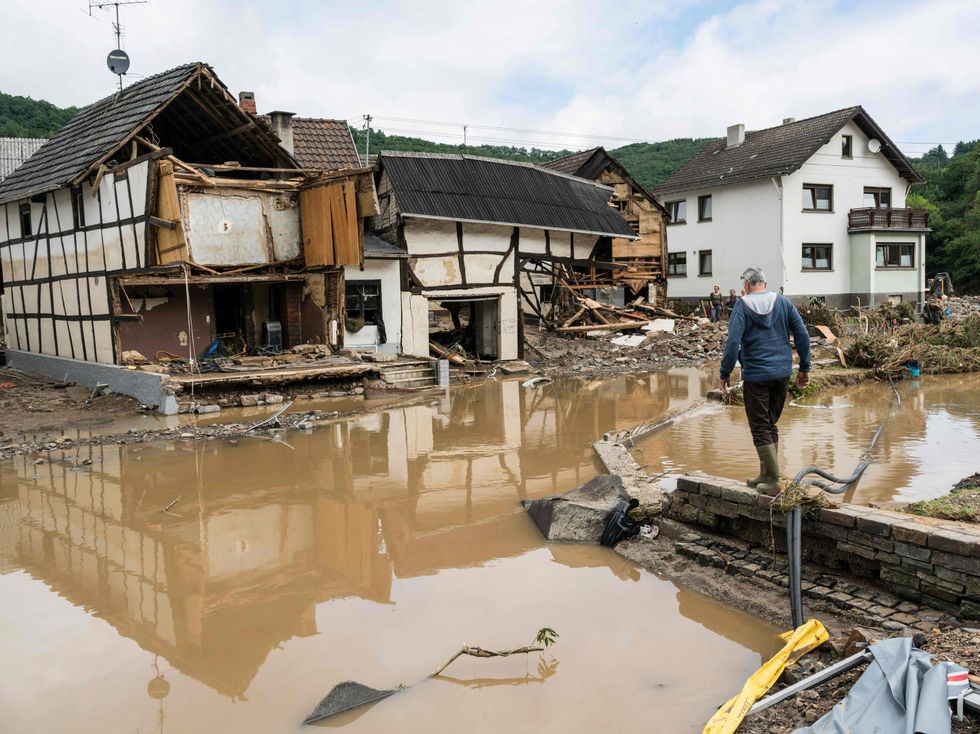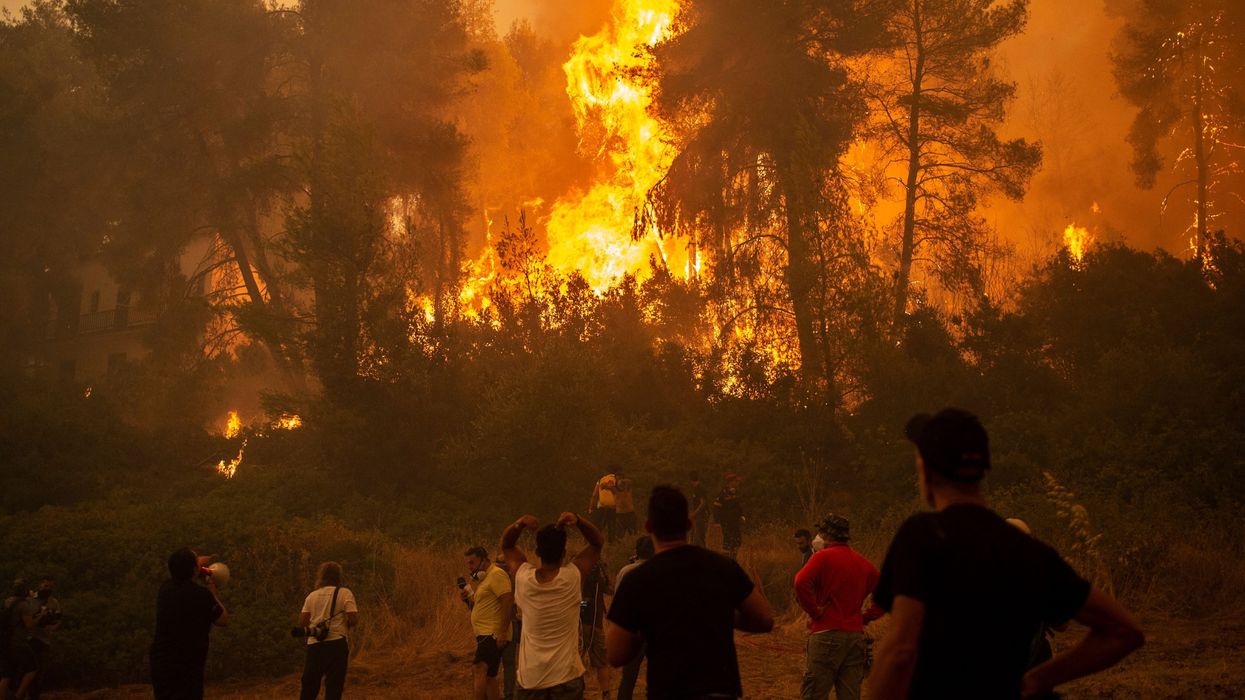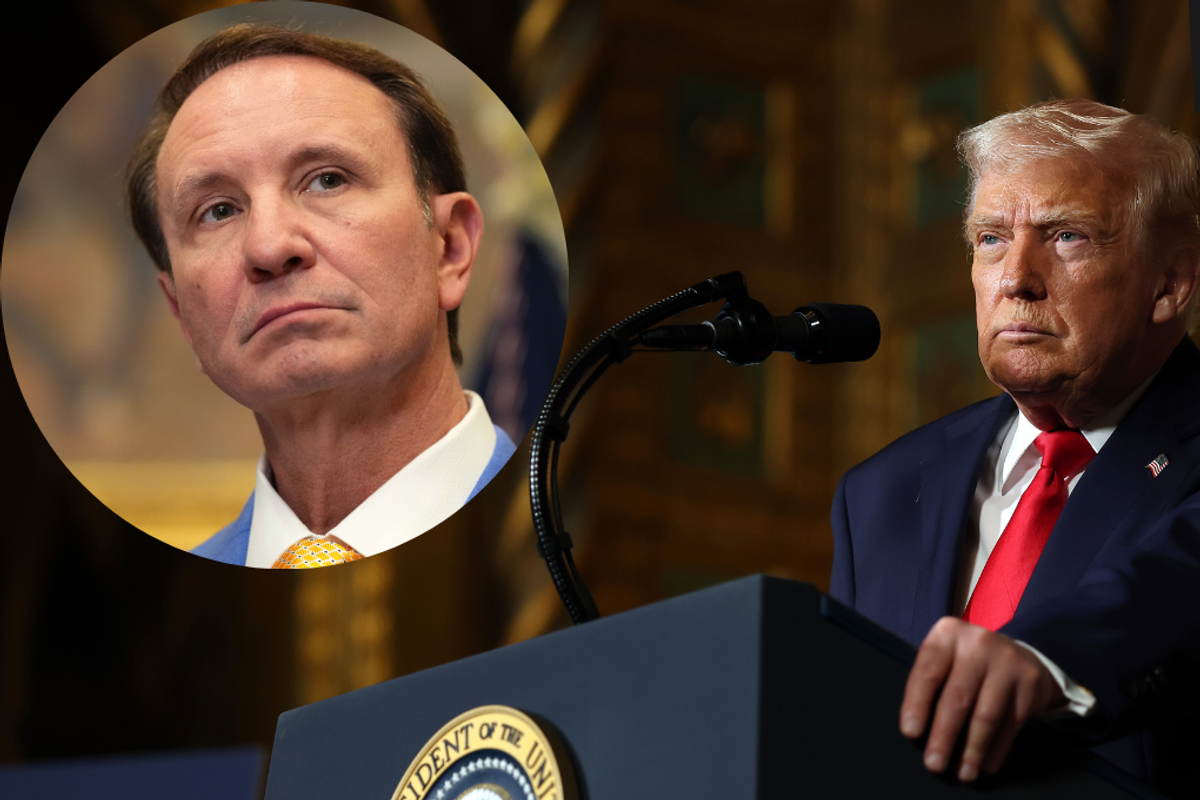Science & Tech
Sinead Butler
Aug 09, 2021
The UN has released a new report on climate change, warning that humans are having an “unequivocal” effect on Earth’s rising temperatures.
According to the Intergovernmental Panel on Climate Change (IPCC), the Earth is on course to exceed both the 1.5C target and the higher 2C warming limits agreed to by 197 countries in the Paris Climate Agreement, if there is no reduction in greenhouse emissions or temperatures.
Here is a full breakdown of what the report says:
What is the IPCC?
- The IPCC is the UN body created in 1988 that looks into the science of climate change in order to help political leaders in 195 countries with environmental policy.
What are the report’s key findings?
- Global temperatures have been driven up by 1.1C due to human-caused climate change, causing extreme weather around the world
- The world is warming at a rate unprecedented in at least 2,000 years
- Carbon dioxide levels in the atmosphere are higher than they have been for three million years and methane concentrations are higher than they have been for 800,000 years
- Human-caused climate change such as fossil fuels has resulted in global average temperatures being 1.1C higher in the past decade than in pre-industrial times (1850-1900)
- Scientists predict global surface temperatures will continue to increase until at least mid-century, and over the next 20 years, the world will reach or exceed 1.5C of warming – the limit countries agreed to in order to avoid dangerous consequences
What are the consequences we are seeing because of climate change?
- Human-caused climate change is already affecting many weather and climate extremes and is also likely the main cause of melting glaciers and ice, as a result of warming oceans and rising sea levels.
- As the temperature rises each time, it will cause more extreme weather patterns.
- For example - every extra 0.5C temperature rise will lead to an increased intensity of heatwaves, heavy rain that can cause flooding, and droughts.

Why is so important to keep within the 1.5C target?
- In 2015, when 197 countries signed the Paris Climate Change Agreement – the global treaty on climate change – a 1.5C target was included in the deal after calls from low-lying islands arguing temperatures any higher than this would threaten their survival.
- As a result, countries pledged to keep global temperature rises to well below 2C above pre-industrial levels and attempt to limit warming to 1.5C.
What happens if we exceed the 1.5C - 2C threshold?
- Although it wouldn’t necessarily be game over, scientists have said that the smallest rise does have an impact, so we should try to avoid this.
- Prof Richard Betts, from the Met Office Hadley Centre and a contributing author to the report, explains why with a car analogy: “Like the speed limit on a motorway, staying below it is not perfectly safe and exceeding it does not immediately lead to calamity, but the risks do increase if the limit is passed.”
- “Limiting warming to 1.5C clearly needs much more urgent emissions cuts than is currently happening, but if the target is still breached we should not assume all is lost and give up – it will still be worth continuing action on emissions reductions to avoid even more warming.”
How the experts reacted:
UN secretary general Antonio Guterres:
Guterres described the report as a “code red for humanity”.
“The alarm bells are deafening, and the evidence is irrefutable: greenhouse gas emissions from fossil fuel burning and deforestation are choking our planet and putting billions of people at immediate risk.
He added: “Global heating is affecting every region on Earth, with many of the changes becoming irreversible.
“The internationally agreed threshold of 1.5C is perilously close.”
Professor Ed Hawkins, one of the lead authors of the report from the University of Reading:
“The 1.5C or 2C goals from the political process, they’re not cliff edges, we don’t fall off a cliff if we go over those thresholds, every bit of warming matters.
“The consequences get worse and worse and worse as we get warmer and warmer and warmer, so every tonne of CO2 (carbon dioxide) matters, and every bit of warming matters,”
Professor Corinne le Quere, a report author from the University of East Anglia:
“The message could not be clearer, as long as we continue to emit CO2 the climate will continue to warm and the weather extremes – which we now see with our own eyes – will continue to intensify.”
She added: “Thankfully we know what to do: stop emitting CO2.”
Professor Joanna Haigh, from Imperial College London:
“The window is still open for governments to avoid the worst impacts and risks and to secure a strong outcome at Cop26 just three months away – but this will depend on nations coming forward ahead of the summit to put in place robust emission reduction plans for the next decade.
“This window won’t remain open for much longer.”
How the politicians reacted:
Boris Johnson, UK Prime Minister:
“The UK is leading the way, decarbonising our economy faster than any country in the G20 over the last two decades.
“I hope today’s IPCC report will be a wake-up call for the world to take action now before we meet in Glasgow in November for the critical Cop26 summit.”
Alok Sharma, Cop26 president:
“The science is clear, the impacts of the climate crisis can be seen around the world and if we don’t act now, we will continue to see the worst effects impact lives, livelihoods and natural habitats.
“Our message to every country, government, business and part of society is simple. The next decade is decisive, follow the science and embrace your responsibility to keep the goal of 1.5C alive.”
Keir Starmer, leader of the Labour Party, described the IPCC report as a “stark reminder yet that the climate crisis is here right now and is the biggest long term threat we face.”
The IPCC report is the starkest reminder yet that the climate crisis is here right now and is the biggest long term threat we face.— Keir Starmer (@Keir Starmer) 1628507911
He also took aim at Johnson for not having “the scale of ambition required to match the moment.”
The biggest threat we now face isn't climate denial but climate delay. Those who, like Boris Johnson, acknowledge… https://t.co/3iwXWKcu9L— Keir Starmer (@Keir Starmer) 1628507911
Ed Miliband, Shadow Business secretary, declared “climate breakdown has already begun, that it’s accelerating across the globe”.
“The biggest threat we now face is not climate denial but climate delay including from the UK Government.
“The scene is now set for Cop26, our last, best hope of a global breakthrough to limit temperature rises to 1.5 degrees.
“The message to the Government here and those around the world is enough rhetoric, enough delay – the era of action is now.”
Caroline Lucas, Green Party MP for Brighton Pavilion said it was “time to act is now” after the UN published the report.
We’re in danger of going down in history as species that chose to monitor its own extinction rather than taking urg… https://t.co/ekj9IeXMcV— Caroline Lucas (@Caroline Lucas) 1628496326
How climate change groups and campaigners reacted:
Jake Woodier, from The Climate Coalition (which includes groups such as the National Trust, the Women’s Institute, WWF, Oxfam and the RSPB):
“Climate change is already here, and after a summer of chaotic and destructive weather, the public want Boris Johnson’s government to act decisively.
“We already know what’s needed to secure a safer future: from saying no to polluting fossil fuels like the Cambo oil field, to restoring the natural world, protecting forests and meeting financial promises to support people on the frontline of the climate crisis.”
He added: “Now, it’s time to get on and do it.”
Greta Thunberg shared her thoughts on the UN report said it contains “no real surprises.”
The environmental activist added: “It doesn’t tell us what to do. It is up to us to be brave and take decisions based on the scientific evidence provided in these reports.”
The new IPCC report contains no real surprises. It confirms what we already know from thousands previous studies an… https://t.co/UG8GdYSJH9— Greta Thunberg (@Greta Thunberg) 1628497385
Greenpeace UK tweeted in response to the UN report’s findings: “Could the need to act be any more clear?”
Code red for humanity. Could the need to act be any more clear? https://t.co/ssddRZrNft— Greenpeace UK (@Greenpeace UK) 1628508951
Top 100
The Conversation (0)














